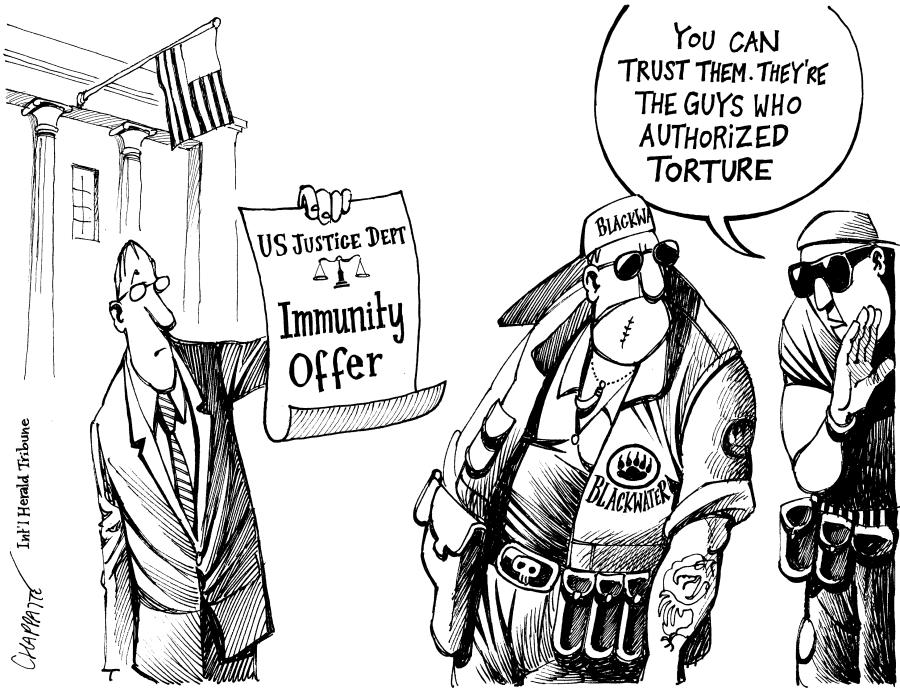In an era marked by increasing scrutiny of private military contractors, the recent promise of immunity for Blackwater guards has brought forth a complex and contentious debate. This assurance raises fundamental questions about accountability, the rule of law, and the social contracts that govern the behavior of armed entities operating in conflict zones.
Blackwater, a controversial private security firm, has a long and checkered history, particularly concerning its operations in Iraq during the early 2000s. The company’s guards have been involved in numerous violent incidents, culminating in the 2007 Nisour Square shootings, where several civilians were killed. This incident not only sparked outrage but also ignited legal ramifications that underscored the tenuous relationship between private contractors and international law.
With the promise of immunity, questions arise about the implications for justice and ethics. On one hand, proponents argue that such immunity is essential for operational efficacy; the rationale being that guards need the assurance to act decisively in volatile environments without the fear of legal repercussions. However, this perspective fails to address the potential for abuse that immunity can engender. Without accountability, what guarantees exist that guards will operate within the confines of ethical conduct?
This development is particularly troubling in the context of modern warfare, where asymmetrical conflicts blur the lines between combatants and non-combatants. The invocation of immunity can perpetuate a culture of impunity, as guards may feel emboldened to engage in actions that disregard civilian safety. Furthermore, the tragedy of such events often reverberates beyond immediate borders, as families and communities mourn the loss of their loved ones, amplifying the ethical dilemmas faced by governments employing these contractors.
Moreover, the promise of immunity stands to shift public perception significantly. It challenges the notion of justice, suggesting that those who operate in the murky terrains of conflict are above the law. This can engender skepticism among the populace, leading to a growing distrust in both private military firms and governmental oversight. As citizens grapple with these issues, the societal narrative surrounding military engagement evolves, demanding a more nuanced understanding of the dynamics at play.
Furthermore, as international discourse shifts toward accountability and human rights, the promise of immunity could serve as a flashpoint for civil discourse. Activists and organizations focused on humanitarian rights may mobilize efforts, seeking to hold private military contractors to the same standards of conduct expected of national military forces. This advocacy could cultivate a more robust framework for accountability, emphasizing legal obligations that transcend national boundaries.
In summary, while the immunity granted to Blackwater guards may be positioned as a necessary measure, it invites a myriad of ethical, legal, and societal inquiries. The implications extend far beyond this singular event, touching on the very fabric of how private military firms operate within conflict zones, and the overarching principles of justice and accountability that society holds dear. As the dialogue continues, one must ponder whether immunity will ultimately safeguard or jeopardize the core tenets of human dignity and rights in the face of violence.
